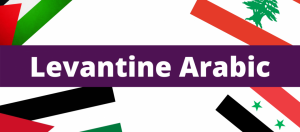Language/South-levantine-arabic/Vocabulary/Express-Surprise
Hi South Levantine Arabic learners! 😊
In this lesson, we will learn how to express surprise in South Levantine Arabic! Expressing surprise is a great way to connect with locals and make them smile. Learning South Levantine Arabic expressions will help you communicate with native speakers and understand their culture. Let's begin by learning some vocabulary!
Take some time to dive into these other pages after completing this lesson: Geography & Drinks.
Vocabulary[edit | edit source]
Below are some commonly used expressions to express surprise:
| South Levantine Arabic | Pronunciation | English |
|---|---|---|
| واو! | waw! | Wow! |
| لا يكون | la ykon | No way! |
| يعني | ya3ni | I mean... |
| يخرب بيتك | ykhreb baytak | Oh my god! |
| الحمدلله عالسلامة | alhamdulillah 3al salameh | Thank god you are safe! |
Expressions in Context[edit | edit source]
We can use these expressions in different contexts. Here are some examples:
- Example 1:
Person 1: وصل الطلب؟ (wsal ettalab?) (Did the order arrive?) Person 2: واو! حقًا؟ (waw! ha9an?) (Wow! Really?)
- Example 2:
Person 1: يا لحظة! هل رأيت هذا؟ (ya la7zeh! hal ra2ayto hada?) (Oh my moment! Have you seen this?) Person 2: يعني ، هذا مدهش! (ya3ni, hada mdeesh!) (I mean, this is amazing!)
Cultural Insights[edit | edit source]
Surprise expressions are an essential component of South Levantine Arabic culture. It is not uncommon to hear these expressions in everyday conversations, and they help create a friendly environment. Using these colloquial expressions can demonstrate your willingness to connect with locals and show them that you respect their culture.
Tips and Suggestions[edit | edit source]
To improve your South Levantine Arabic Vocabulary, you can also use the Polyglot Club website. Find native speakers and ask them any questions!
To get even more practice, check out the Vocabulary page on Polyglot Club for additional vocabulary words and phrases.
Sources[edit | edit source]
➡ If you have any questions, please ask them in the comments section below.
➡ Feel free to edit this wiki page if you think it can be improved. 😎
Other Lessons[edit | edit source]
- Greetings
- How to Say Hello and Greetings
- Clothes
- How to say Good Bye?
- Useful phrases
- Feelings and Emotions
- Health
- Education
- Days of the Week
- Drinks

